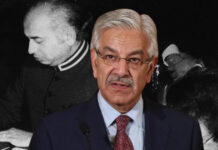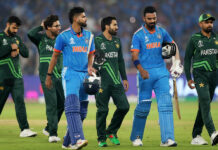Once upon a time in Pakistan’s golden television era, women tuned into their evening dramas not just for escapism, but for empowerment. Pakistani dramas like Dhoop Kinare and Tanhaiyan weren’t just stories, they were the literal standard for the women of that time.
Fast forward to 2025, and the picture is far bleaker.
Today, the damsel in distress and toxic alpha male trope is the typical storyline. With all their high-definition camera work and painfully long OSTs, the dramas these days seem less interested in empowering women and more focused on emotionally shackling them, often under the pretext of love.
The worst part? This is incredibly dangerous for a society that is already plagued with such toxic stereotypes.
From Empowerment to Endurance
Today, Pakistani dramas are shedding light on dark themes like abuse, manipulation and misogyny, but, sadly, in the worst way possible. They are not being addressed, instead, they are being glorified.
Shows like Tere Bin and Mann Mast Malang (a recent drama making headlines for all the wrong reasons) are prime offenders. In these storylines, the “hero,” who is almost always a violent, possessive man-child that stalks, coerces and emotionally terrorises his love interest and the female lead ends up falling for him.
And we are supposed to believe this is true love. Why? Because he broods handsomely? Because he sheds a single remorseful tear in episode 20 before returning to his alpha male antics?
That’s one way to feed us the toxic narratives that we already suffer the consequences of on a wide scale.
The Allure of the ‘Toxic Hero’
Let’s be honest, the bad boy trope is not new, nor is it unique to Pakistan. But Pakistani dramas have taken it to a dangerous extreme. The romanticism of control (where jealousy is mistaken for love and silence is a sign of virtue) is fed to millions of viewers as ideal relationship behaviour.
Female viewers, many of whom look to dramas for a reflection of their lives or possibilities beyond them, are instead being fed a steady diet of distorted affection.
The endgame is always the same: the woman must suffer, forgive and eventually be rewarded with her abuser’s love. Her strength is measured not by how she asserts herself, but by how much she can endure.
And God forbid she walks away because that would be too empowering. Just look at this “best scene”, for example.
The Writer’s Responsibility
This regression isn’t accidental. It’s a reflection of a writer’s choice, a producer’s priority, and a channel’s chase for TRPs.
When drama plots equate male aggression with romance, they send a chilling message: if he hurts you, he probably loves you, and if he is being toxically dominant, then he is definitely your soulmate.
Such dramas don’t just romanticise aggression, they desensitise audiences to it.
Writers must stop hiding behind the excuse of “audience demand.” The audience responds to what they’re shown repeatedly. It’s not a demand; it’s conditioning. Our dramas have been training women for years to believe that love means sacrifice, even of one’s dignity and safety.
We need new narratives. Ones where women leave toxic relationships, where men are emotionally intelligent and where love is rooted in mutual respect — not power games. Why? Because life imitates art more than art imitates life.
Not All Hope is Lost
Alas, not all is bleak. Dramas like Dar Si Jati Hai Sila and Udaari have dared to confront abuse without glamorising it. They showed women finding their voice and reclaiming their agency. But these examples are far and few between in a sea of melodramatic sob-fests.
Pakistani dramas once had the power to spark change. They challenged cultural norms, gave women role models, and offered more than just love stories. Many underrated dramas are major examples of such scripts.
A woman with dreams, ambition and boundaries isn’t a threat to the narrative. Perhaps, she is the narrative.
Stay tuned to Brandsynario for the latest news and updates.






































